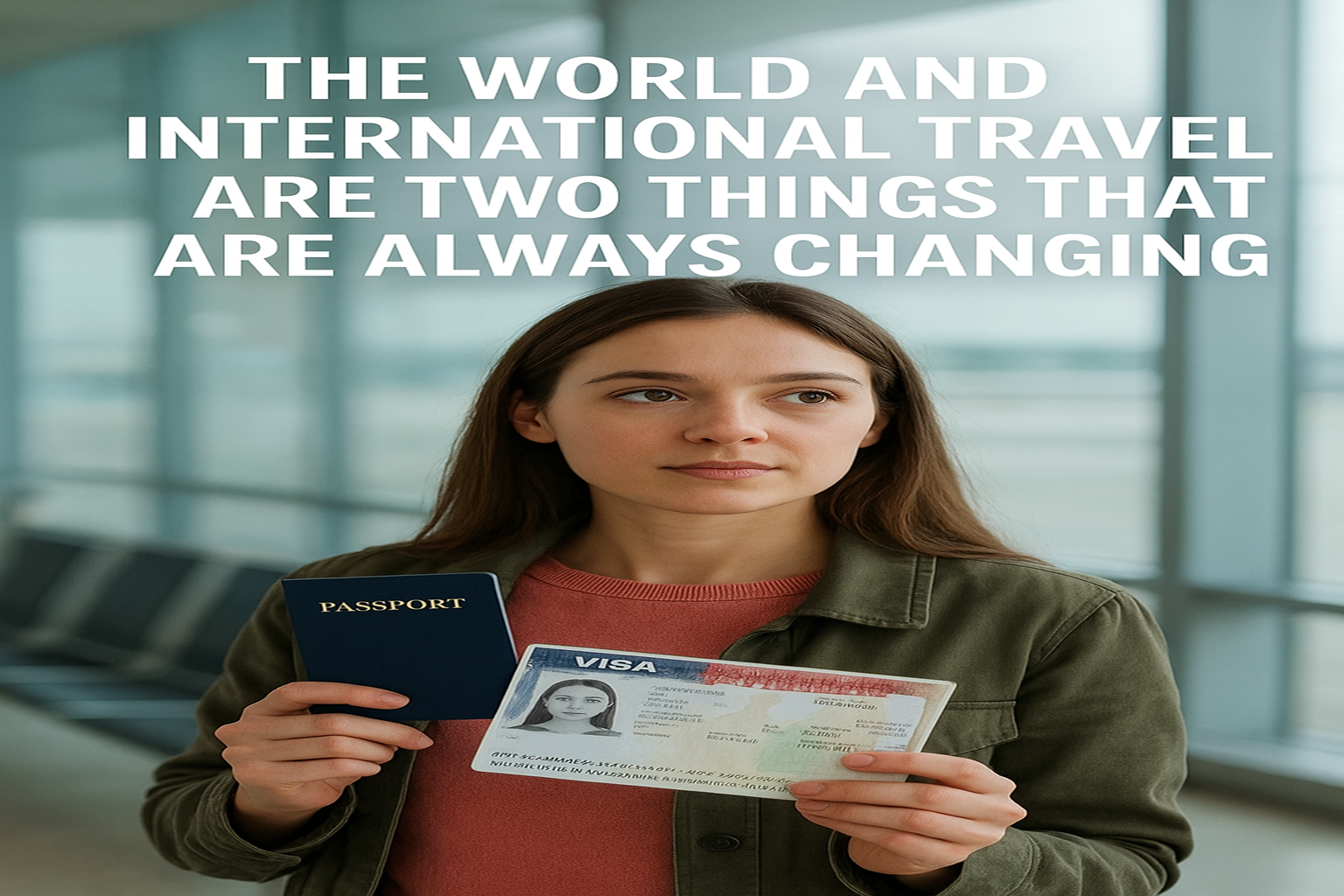
02 Sep The Future of Visas: Trends Every Traveler Should Watch
The world and international travel are two things that are always changing. In 2025, visa policies are undergoing significant transformations, influenced by technological advancements, shifting geopolitical dynamics, and changing traveler behaviors. Understanding these trends is crucial for anyone planning to explore new destinations.
1. Digital Nomad Visas: Embracing the Remote Work Revolution
The rise of remote work has led to the introduction of digital nomad visas by numerous countries. These visas allow professionals to live and work legally in foreign countries while maintaining their employment remotely. In 2025, destinations like Romania, South Korea, and Argentina are emerging as attractive options for digital nomads, offering favorable policies and vibrant communities.
2. E-Visas: Simplifying the Application Process
Electronic visas (e-visas) are becoming increasingly popular, stre amlining the application process and reducing the need for in-person visits to embassies. Many countries are expanding their e-visa offerings, making it easier for travelers to obtain the necessary documentation for their trips.
3. Biometric Verification: Enhancing Security and Efficiency
To bolster security and expedite processing times, many nations are implementing biometric verification systems for visa applications. These systems utilize technologies like facial recognition and fingerprint scanning to authenticate travelers, ensuring a smoother and more secure entry process.
4. Visa Waiver Programs: Facilitating Short-Term Travel
Visa waiver programs are being expanded to promote tourism and business exchanges. Countries are increasingly allowing travelers from certain nations to enter without a visa for short stays, simplifying the travel experience and fostering international relations.
5. Sustainability and Visa Policies: A Growing Focus
Environmental concerns are influencing visa policies, with some countries introducing requirements that encourage sustainable travel. Travelers may encounter policies that promote eco-friendly practices, such as carbon offset contributions or adherence to environmental standards, as part of the visa application process.
6. U.S. Visa Policy Shifts: Increased Scrutiny and Costs
The United States is implementing stricter visa policies, including mandatory in-person interviews for nearly all applicants and the introduction of a $250 “visa integrity fee” for non-immigrant travelers. These changes aim to enhance security but may lead to longer processing times and increased costs for travelers.
7. Golden Visas: Investment-Based Residency
Golden visa programs, which grant residency in exchange for significant investments, continue to attract high-net-worth individuals. Countries like Portugal and Spain offer these visas, providing opportunities for investors to reside in the European Union.
8. Data Privacy Regulations: Protecting Traveler Information
As concerns over data security grow, countries are implementing stricter data privacy regulations in visa applications. Travelers may be required to provide additional documentation or consent to data-sharing agreements to comply with these laws.
9. Student and Exchange Visitor Visa Reforms
The U.S. Department of Homeland Security has proposed changes to student and exchange visitor visa policies, including fixed admission periods and shortened grace periods. These reforms aim to strengthen immigration enforcement but may impact international students and exchange visitors.
10. Regional Mobility Agreements: Facilitating Cross-Border Travel
Countries within certain regions are forging mobility agreements to ease travel restrictions and promote tourism. For instance, Southeast Asian nations are implementing short-term visa exemptions for neighboring countries, fostering economic and cultural exchanges.
Conclusion
The future of visas is characterized by technological advancements, regional cooperation, and evolving policies. Travelers must stay informed about these trends to navigate the complexities of international travel effectively. By understanding these changes, travelers can better prepare for their journeys and make the most of the opportunities that lie ahead.



No Comments